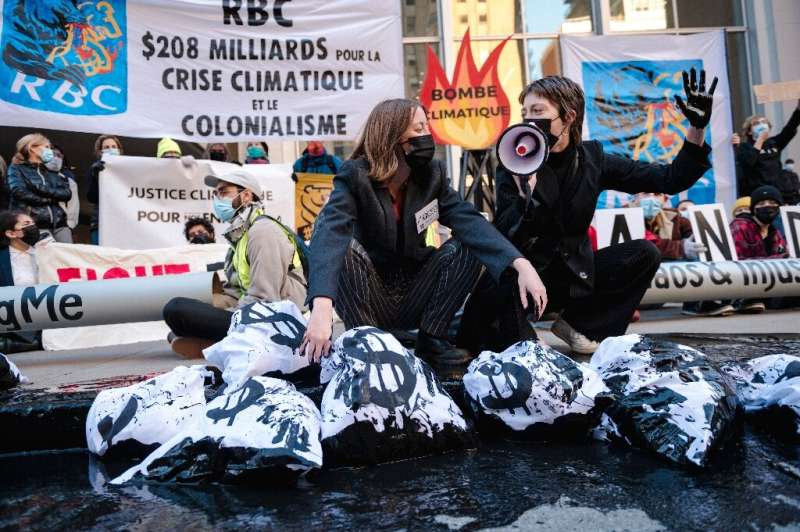G7 corporate climate plans spell 2.7C heating: analysis

The decarbonisation plans of some of the biggest corporations from G7 nations put Earth on course to heat a potentially catastrophic 2.7 degrees Celsius—blowing Earth well past the Paris Agreement temperature goals, analysis showed Tuesday.
As more and more firms announce their intention to become carbon neutral by mid-century at the latest, scrutinizing corporate claims of green action is increasingly important to check whether they are aligned with the latest climate science.
CDP, a non-profit that runs a global disclosure system for companies to manage their environmental impacts, looked at the climate plans of more than 4,000 firms across the world’s seven largest economies.
They found that current plans would lead to a world by 2100 that is 2.7C hotter than currently—a far cry from the temperature goals of the 2015 Paris deal, which enjoins nations to limit warming to “well below” 2C above pre-industrial levels.
Europe was the best performer, with rapid action since 2021 likely to have “cooled” the temperature prediction some 0.3C, the analysis showed.
Businesses in Canada, on the other hand, were the worst performing in terms of decarbonization plans, with 88 percent of reported greenhouse gas emissions coming from firms that have no disclosed net zero plans.
Across all regions and sectors, only the European power generation sector achieved a temperature rating below 2C, driven by targets from renewable and nuclear energy companies.
Many companies have plans in place to reduce emissions directly produced from their business operations, such as vehicle exhausts and office heating.
Far fewer have plans covering emissions produced by the consumption or use of their products and which often count for most of their carbon footprints.
Companies in Germany, Italy and the Netherlands had policies to reduce their emissions across their entire value chain, which equated with a 2.2C temperature rise, according to the CDP.
“However, despite this progress, the average temperature ratings for corporates remain well above 1.5C across all major European economies,” it said.
US energy laggards still not Paris compliant: analysis
© 2022 AFP
Citation:
G7 corporate climate plans spell 2.7C heating: analysis (2022, September 6)
retrieved 6 September 2022
from https://phys.org/news/2022-09-g7-corporate-climate-27c-analysis.html
This document is subject to copyright. Apart from any fair dealing for the purpose of private study or research, no
part may be reproduced without the written permission. The content is provided for information purposes only.
For all the latest Science News Click Here
For the latest news and updates, follow us on Google News.

